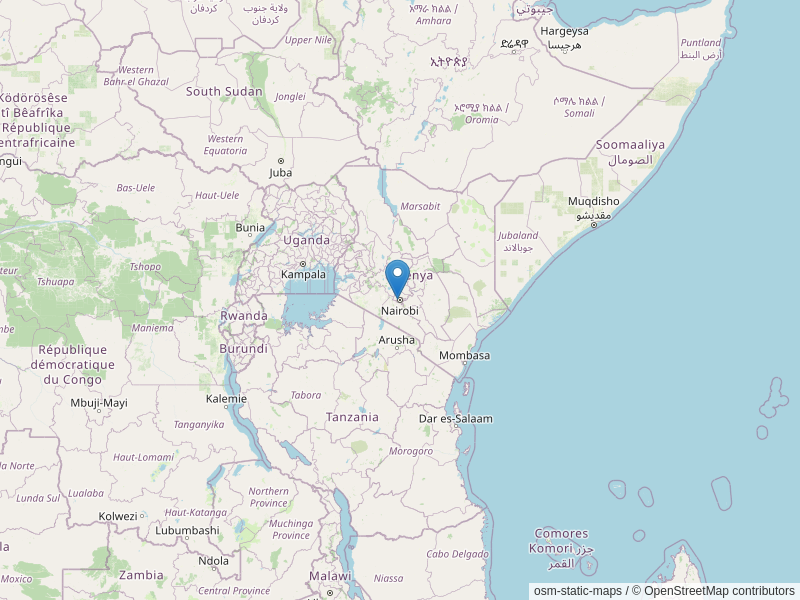Workshop Report on the Incubator Lab: Impact of Misinformation & Disinformation in the Global South (Influence of emerging technologies such as AI)
Introduction
The workshop took place between the 21st – 24th June 2023 at Pride Inn Azure Hotel Nairobi, Kenya and participation was purely physical. The theme of the workshop was “Impact of Misinformation & Disinformation in the Global South (Influence of emerging technologies such as AI)”
The workshop was organized by The Global Diplomacy Lab (GDL) and its main aim was to generate an understanding through use-cases of current challenges linked to “Misinformation and Disinformation in Kenya and the region”, with a specific focus on current technological advancements, the use of digital tool sets and the impact of social media penetration and misuse. The Lab’s main focus was to enhance the voice of regional stakeholders with a professional focus on misinformation and disinformation and highlight the implications for community settings and policy discussions.
The discussion was based largely upon (expert) group interaction, knowledge sharing, and real-life examples from Kenya and required active participation by GDL Members. Moreover, participants were invited to bring in their diverse perspectives as well as best practices from other regions. The discussions by GDL presenters used different formats and methods such as case studies, group activities, and interactive presentations, as well as hands-on practice and reflection. Emphasis was given to providing a broad overview of disinformation architecture relevance to local communities in Kenya, presenting risks and challenges as well as projects and grassroot initiatives. Key concerns and voices were highlighted, bringing in experience sharing from all over the world.
The participants applied the ADIDS methodology (Activity, Discussion, Input, Deepening, Synthesis). Content and exercises were adapted to ensure a highly interactive working environment and promote peer-to-peer learning and exchange.
The emphasis was on hands-on learning and discussion to identify key themes that should be included in the online and social media consumption of misinformation, with a focus on lessons learned from the use of technology-based information flow. An abductive approach was used as a facilitation methodology to provide a flexible framework in which participants worked together while remaining grounded, allowing for the emergence of new ideas in coordination with local partners. The abductive method combined both inductive (ideas generated from the bottom up) and deductive (ideas generated within a prescribed framework) approaches. The outcome of the discussion was to generate results that contribute to an initial draft for actionable policy and project recommendations in the Global South for awareness building, analyzing, and arresting the spread of misinformation and disinformation.
Furthermore, a particular focus was on how a multi-stakeholder approach considers the inclusion of communities, vulnerable groups, and civil society towards ensuring an inclusive range of perspectives. In addition, sessions were dedicated to running Challenge Holder questions, building consensus and establishing learning that benefits Kenyan stakeholders and advances the engagement of GDL Members in supporting and empowering the Kenyan eco-system in addressing the challenges of disinformation and misinformation.
The results were presented in a format that can be referred to by policymakers such as foreign ministries, other relevant governmental or non-governmental stakeholders, GDL Members and partners, as well as local and global practitioners and civil society actors not only in the region but also transferable for larger parts of Global South countries.
Main Workshop Topics
- Introductory Session: Taxonomy of Misinformation and Disinformation
- Overview: National Coalition on Freedom of Expression and Content Moderation in Kenya
- Mis- and Disinformation and Climate
- A Provocative Dialogue: Navigating Mis/Disinformation in the Digital Age
- Disarm Language to Counter Disinformation
- Identification of Deliverables with a ‘Policy Perspective’ on Misinformation and Disinformation
- Realm of ‘Misinformation and Disinformation’ and Impact of Emerging Technology (AI)
- New Digital Instruments Influencing ‘Misinformation’ Cross-Learnings, Innovative Projects and Their Impact on Societies in the Global South
Workshop Deliberations
- It was agreed that Misinformation and Disinformation need a multidisciplinary and multisectoral approach
- Misinformation and Disinformation occurs at all facets in society and increased awareness needs to be done so that people are informed on the dangers of Misinformation and Disinformation
- Increased involvement of journalists so that the information can percolate gown to the grassroots
- Increased involvement of local administrators and clergy to inform the general public about the dangers of disinformation and misinformation
- Also, more National Multiplication workshops on Misinformation and Disinformation to be conducted across the country and at the grassroots to create awareness about the vice
- Increased membership recruitment of GDL
- Other organizations like media, DAAD, and foundations can step in and support the awareness of disinformation and misinformation
Role of DAAD in Global Diplomacy Lab
Based on the importance and also the implications of the dangers of disinformation and misinformation especially online and social media and DAAD having nominated two members to participate in the GDL Lab in Nairobi as a partner. We strongly feel that GDL is doing great work and we suggest that DAAD can now, if possible, become a member of GDL.
instead of being a partner. This is due to the huge impact and misinformation and disinformation being spread outside here which can have a global catastrophe.
Secondly, we suggest that the two members who participated from DAAD ( Dr. Patrick Okanya and Dr. Ezekiel Mecha) become full members of GDL so that they can use the knowledge and experiences they gained during the workshop and their experiences in organizing workshops and conferences to debunk and cascade the information about the dangers of misinformation and disinformation
Lastly, we suggest that if possible, DAAD can support more workshops or conferences on the same to the DAAD alumni/members who in turn can be the agents of spreading the information on the dangers of misinformation and disinformation.
Report Compiled by Dr. Ezekiel Onyonka Mecha, Senior Lecturer, Department of Biochemistry, University of Nairobi, Chairperson, Kenya DAAD Scholars Association, University of Nairobi, Chapter, World Endometriosis Society Board Member and Ambassador.










